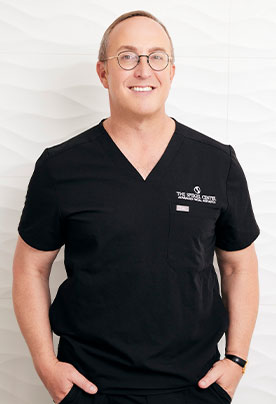
Before undergoing cosmetic surgery, medical clearance helps ensure that your procedure is as safe and successful as possible. It’s a routine step that allows us to understand your overall health and address any concerns that could impact your surgery. In most cases, medical issues don’t stand in the way of safely and successfully undergoing surgery. Leading plastic surgeons deal with such cases regularly and know how to ensure an optimal outcome. In fact, many of our patients come to us with preexisting conditions, and they still achieve the cosmetic results they want.
To prioritize patient safety, we often request medical clearance to fully understand your health history and any concerns. This clearance acts as a "green light," confirming it’s safe to proceed with surgery. Sometimes, this process even uncovers previously undetected medical conditions, providing you with deeper insight into your overall health. If you are considering cosmetic surgery but are worried about how a medical issue might affect your eligibility—or whether you’ll need medical clearance at all—don’t let it hold you back. Here’s what you need to know about medical clearance for plastic surgery:
When Is Medical Clearance Needed?
All patients undergoing general anesthesia for surgery require medical clearance, but some requirements are determined on a case-by-case basis, depending on your unique health profile. A standard pre-operative clearance entails a history and physical and basic blood tests. An EKG may also be performed based on your age. Our decisions about further screening are based entirely on your well-being. For instance, if you have had heart-related issues like high blood pressure or a heart attack, we may request clearance from your cardiologist to ensure that it is safe to proceed. Your cardiologist may require additional tests such as an echocardiogram or a cardiac stress test to confirm your readiness for surgery.
We also consider any medications you’re taking. For example, if you’re on blood thinners, we’ll collaborate with your prescribing doctor to decide if it’s safe to temporarily stop them before your procedure.
Additionally, many ambulatory surgical centers (ASCs) require their own tests to ensure candidates are fit for surgery in their facilities. At The Spiegel Center, we perform our procedures in a fully accredited ASC with a board-certified physician anesthesiologist and/or certified registered nurse anesthetist (CRNA), ensuring the highest level of patient safety and comfort during surgery.
What’s Involved in Medical Clearance?
In most cases, you’ll obtain clearance from your primary care physician (PCP). With your consent, we’ll contact your PCP or specialist to gather more information about your medical condition. Medical clearance usually involves a thorough physical exam and blood work, but additional tests may be required depending on your health status. Most surgical centers, including ours, require clearance and lab results well before surgery to allow time for review by the surgical and anesthesia teams.
Do I Need Medical Clearance?
Medical clearance helps surgeons perform procedures safely, minimizing risks and improving outcomes. The best way to know if you’ll need clearance is to consult with a board-certified plastic surgeon who can address your concerns, explain the requirements, and determine what makes sense for you.
If you’re ready to explore your options, schedule a consultation with our double board-certified facial plastic surgeons to discuss your health, goals, and the procedure that interests you.





